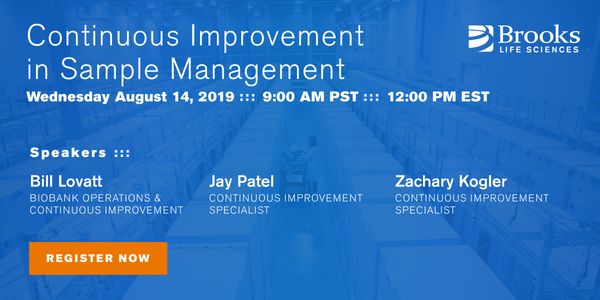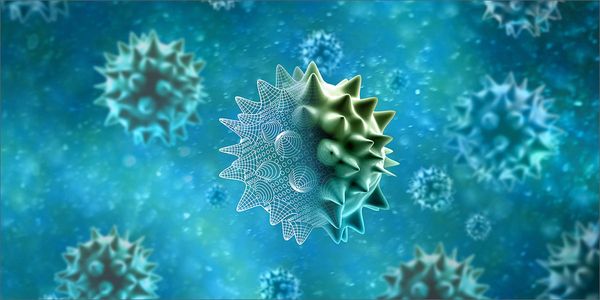Clinical Microbiology
Clinical Microbiology is a branch of medical science concerned with the prevention, diagnosis and treatment of infectious diseases. Moreover, this field of science is concerned about various clinical applications of microbes for the improvement of health. There are four kinds of microorganisms that cause infectious disease: bacteria, fungi, parasites and viruses.
-
AUG 15, 2019 | 9:00 AMDATE: August 15, 2019TIME: 9:00am PDT, 12:00pm EDT Radiation therapy is a critical tool for the treatment of brain tumors, however, exposure to high doses of ionizing radiation...AUG 14, 2019 | 9:00 AMDATE: August 14, 2019TIME: 9:00am PT. 12:00pm ET Implementation of Lean Methodology in Biobanking Operations to standardize sample management processes is effective. Each proce...JUL 31, 2019 | 9:00 AMDATE: July 31, 2019TIME: 9:00am PT, 12:00pm ET The choroid plexus, which makes up the blood-cerebrospinal fluid barrier in the central nervous system (CNS), lines the ventricle...JUL 30, 2019 | 6:00 AMDATE: July 30, 2019TIME: 6:00am PT, 9:00am ET The current version of the EMA Guideline for the environmental risk assessment of human drugs was published in 2006. This guidance...JUL 25, 2019 | 9:00 AMDATE: July 25, 2019TIME: 9:00am PT, 12:00pm ET Vaginitis / vaginosis (V/V) is defined as a spectrum of conditions that cause vaginal and sometimes vulvar symptoms, such as itch...JUL 24, 2019 | 9:00 AMDATE: July 24, 2019TIME: 9:00am PT, 12:00pm ET This webinar offers an overview of C. difficile diagnostic test methods, discussion on the controversy regarding the best laborat...Speaker: Karen Carroll, MD , Masako Mizusawa, MD, PhD, MSJUL 17, 2019 | 9:00 AMDATE: July 17, 2019TIME: 9:00am PDTViral infections, including those caused by cytomegalovirus (CMV), Epstein-Barr virus (EBV) and BK virus (BKV) are an important cause of morbidity and...JUN 26, 2019 | 9:00 AMDATE: June 26, 2019TIME: 9:00am PDT, 12:00pm EDT An excessive number of software solutions are available to help manage your clinical, biobank, or biorepository sample inform...MAY 21, 2019 | 7:00 AMDATE: May 21, 2019TIMEL 7:00am PT, 10:00am ET Human T cells are central effectors of immunity and cancer immunotherapy. CRISPR-based functional studies in T cells could prioriti...MAY 16, 2019 | 4:00 PMDATE: May 16, 2019TIME: 7:00am PDT, 10:00am EDT, 4:00pm CEST The emergence of NGS is revolutionizing the microbiological sciences and transforming medicine. Deep sequencing has...Recent evidence indicates that the immunoglobulin (IG) gene loci reside within the most complex and variable regions of the human genome, characterized by elevated levels of single nucleotide...
To reduce the global burden diseases causes by infectious disease, including parasites and bacteria, scientists need better information about mechanisms of virulence, immune evasion, and drug...
Speaker:
Meredith Ashby, PhD
Despite over 60+ years of research, the etiology of bacterial vaginosis (BV), the most common vaginal infection, remains controversial. Epidemiological data strongly suggest that BV is acquir...
Speaker:
Christina Muzny, MD, MSPH, FACP
Presented at: Infectious Disease Virtual Event Series 2019
APR 23, 2019 | 9:00 AM
DATE: April 23, 2019TIME: 9:00am PDT, 12:00pm EDT ABSTRACT: Learning Objectives: List benefits of liquid based collection and transport systems...
The exponential advents of advances in techniques and types of molecular diagnostic testing, and modifying strategies for these tests, are encouraging; but these evolutions simultaneously con...
APR 02, 2019 | 3:00 PM
DATE: April 2, 2019TIME: 3:00pm CEST Dans ce webinaire, Marie Piketty rappelle que depuis quelques années, plusieurs cas d'interférences provoquées par l...
Whole food plant-based diets and medical cannabis have shared and continues to share similar levels of scrutiny, doubt, and stigma by the traditional medical community. One reason for the med...
FEB 28, 2019 | 10:00 AM
DATE: February 28, 2019TIME: 10:00am PST, 1:00pm EST Over the past few years the gastroenterology diagnostic market has witnessed an increase in comm...
Speaker:
Margie Morgan, PhD, D(ABMM), MT(ASCP)
FEB 26, 2019 | 9:00 AM
DATE: February 26, 2019TIME: 9:00am PST, 12:00pm EST In an era of increasingly high-throughput, large-scale biology, with companies, government and non-prof...
Speaker:
Andrew Brooks, Ph.D.
, Shawn Levy, Ph.D.
, Brad Hamilton
, Fay Betsou, Ph.D
Sponsored By: Brooks Life Sciences
In biomedical research, data should be treated as first-class corporate assets--they were expensive to create, they are expensive to maintain, and they have future business value. The petabyt...
Speaker:
Chuck Donnelly
, Julie Morrison
Presented at: Laboratory Animal Sciences Virtual Event Series 2019
Prodrugs are harmless in their native state, as they are not targeted by human enzymes. But they can be converted into highly toxic compounds (the “drug”) by viral or bacterial en...
DEC 13, 2018 | 6:00 AM
DATE: December 13, 2018TIME: 6:00am PT, 3:00pm CET La complejidad de los pacientes hospitalizados con sospecha de infección suscita...
NOV 29, 2018 | 7:00 AM
DATE: November 29, 2018TIME: 15:00pm WET, 07:00am PST O vírus da Hepatite C (HCV) é uma infeção mundial, que...
In 2017, the Washington State Legislature passed HB 1427, which mandated that boards and commissions for five prescribing professions (dental, medical, nursing, osteopathic, and podiatric) en...
Speaker:
Blake Maresh, MPA, CMBE
























